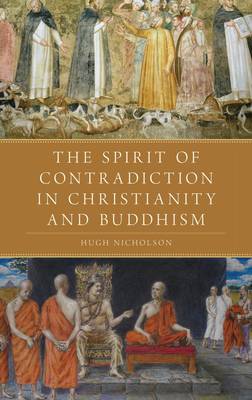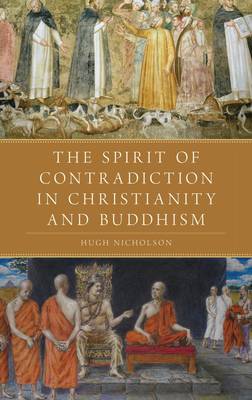
- Retrait gratuit dans votre magasin Club
- 7.000.000 titres dans notre catalogue
- Payer en toute sécurité
- Toujours un magasin près de chez vous
- Retrait gratuit dans votre magasin Club
- 7.000.0000 titres dans notre catalogue
- Payer en toute sécurité
- Toujours un magasin près de chez vous
157,95 €
+ 315 points
Description
The cognitive science of religion has shown that abstract religious concepts within many established religious traditions often fail to correspond to the beliefs of the vast majority of those religions' adherents. And yet, while the cognitive approach to religion has explained why these "theologically correct" doctrines have difficulty taking root in popular religious thought, it is largely silent on the question of how they developed in the first place. Hugh Nicholson aims to fill this gap by arguing that such doctrines can be understood as developing out of social identity processes. He focuses on the historical development of the Christian doctrine of Consubstantiality, the claim that the Son is of the same substance as the Father, and the Buddhist doctrine of No-self, the claim that the personality is reducible to its impersonal physical and psychological constituents. Both doctrines are maximally counterintuitive, in the sense that they violate the default expectations that human beings spontaneously make about the basic categories of things in the world. Nicholson argues that that these doctrines were each the products of intra- and inter-religious rivalry, in which one faction tried to get the upper hand over its ingroup rivals by maximizing the contrast with the dominant outgroup. Thus the "pro-Nicene" theologians of the fourth century developed the concept of Consubstantiality in the context of an effort to maximize, against their "Arian" rivals, the contrast with Christianity's archetypal "other," Judaism. Similarly, the No-self doctrine stemmed from an effort to maximize, against the so-called Personalist schools of Buddhism, the contrast with Brahmanical Hinduism with its doctrine of an unchanging and eternal self. In this way, Nicholson shows how religious traditions, to the extent that their development is driven by social identity processes, can back themselves into doctrinal positions that they must then retrospectively justify.
Spécifications
Parties prenantes
- Auteur(s) :
- Editeur:
Contenu
- Nombre de pages :
- 344
- Langue:
- Anglais
Caractéristiques
- EAN:
- 9780190455347
- Date de parution :
- 01-03-16
- Format:
- Livre relié
- Format numérique:
- Genaaid
- Dimensions :
- 157 mm x 236 mm
- Poids :
- 589 g

Les avis
Nous publions uniquement les avis qui respectent les conditions requises. Consultez nos conditions pour les avis.






